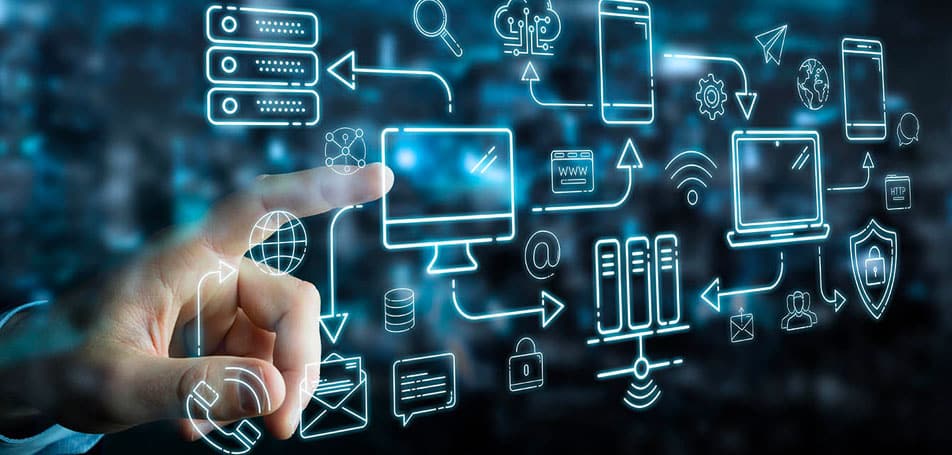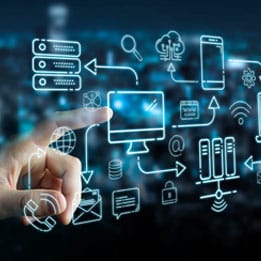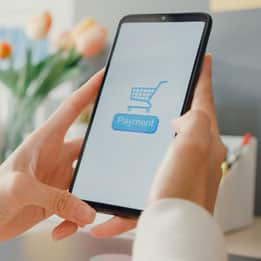
According to the International Data Corporation (IDC), revenue from the Internet of Things (IoT) is expected to surpass $1 trillion by 2022. The IDC also predicts that there will be approximately 41.6 billion IoT-connected devices by 2025, a number which would generate nearly 80 zettabytes of data. However, despite the global surge of IoT-enabled platforms, many people aren’t exactly sure what the IoT is, or how it could impact businesses around the world in the near future.
What is the IoT?
“The Internet of Things is actually a pretty simple concept,” says Calum McClelland, the VP of Operations and Projects at Leverage, an IoT software company. “It means taking all the things in the world and connecting them to the internet.” Things that connect to the internet can be put into one of three categories:
- Things that collect information and then send it.
- Things that receive information and then act on it.
- Things that do both.
One example of an IoT device, or “thing,” is a smartphone. The phone itself doesn’t contain millions of songs, but it can access pretty much any song from around the globe since it has the ability to connect to the internet. A smartphone sends information by requesting a specific song, receives that information, and then it can play it for you once it obtains the data.
Popular Applications of IoT
IDC expects there to be a dramatic increase in smart-home IoT devices and wearable items in the near future, as well as IoT-enabled surveillance equipment. For now, the most popular categories of IoT-enabled applications currently include:
- Automated inventory replenishment.
- Industrial vending machines.
- Monitoring equipment usage and/or consumption.
- Analyzing data for predictive ordering.
- Payment for “as-needed” services.
Requirements for Businesses
Not every business is well-equipped for taking full advantage of the IoT. The company must have a flexible, API-first platform, a diverse product catalog, and the ability to connect to numerous backend systems (like analytics, fulfillment, and ERP). While it may seem like a challenging task to take on, a company optimized for IoT can expect:
- Improved customer experience.
- Reduced maintenance costs and downtime.
- Optimized products based on real-time data analysis.
- Boosted supply chain and inventory efficiencies.
As we look forward to 2020, see how Wagento can help you prepare for the future by checking out our other blog posts and eCommerce solutions!
















